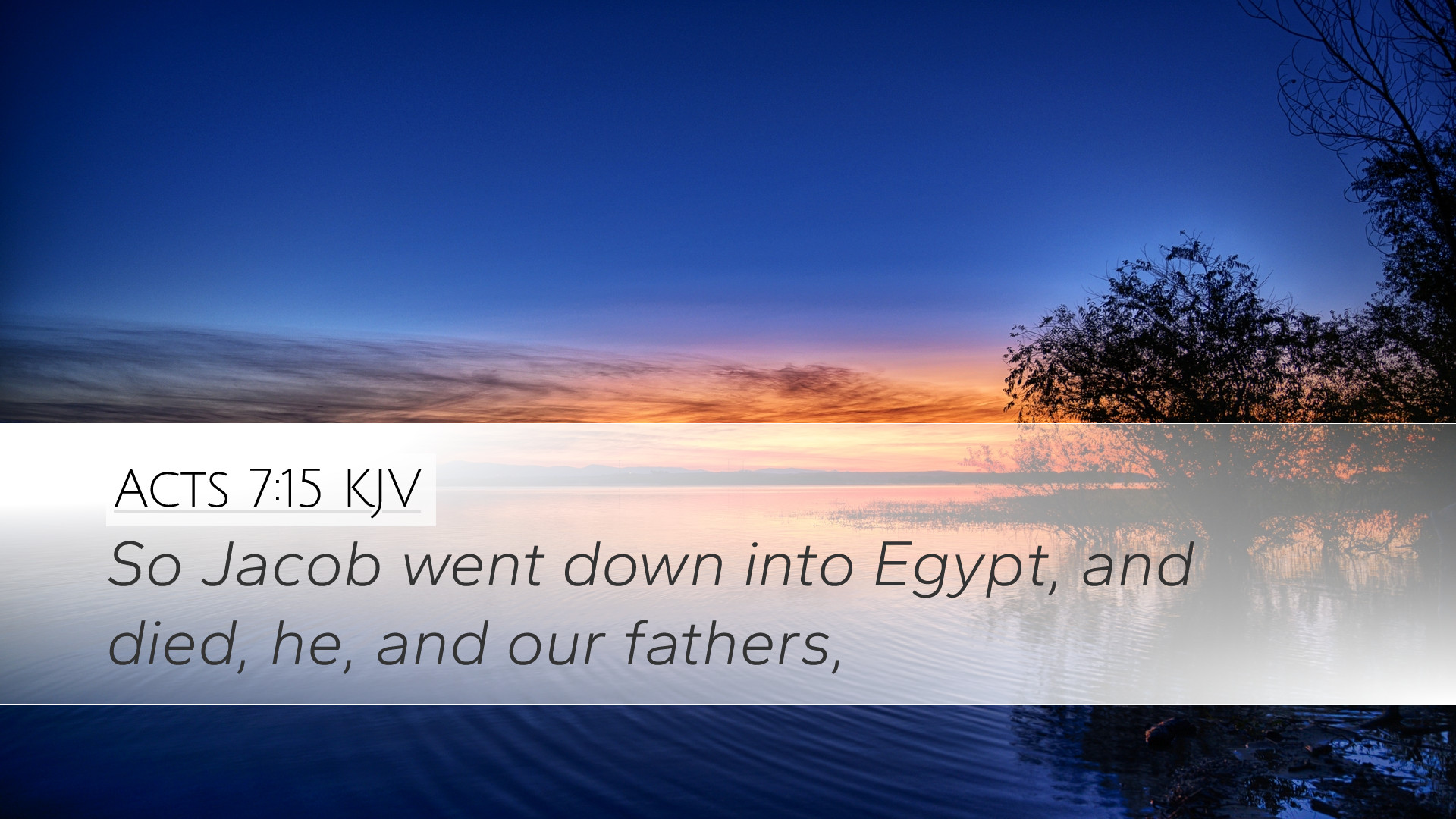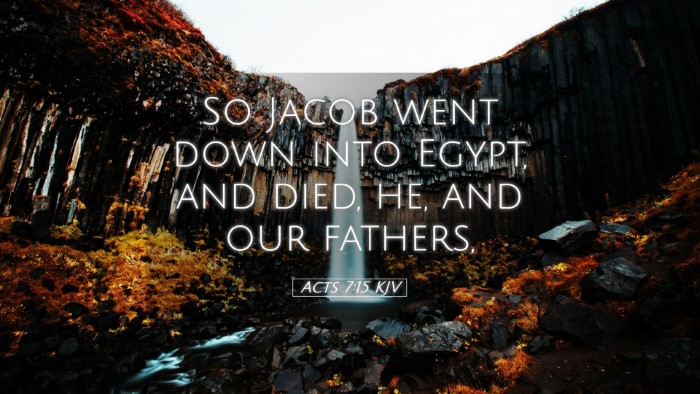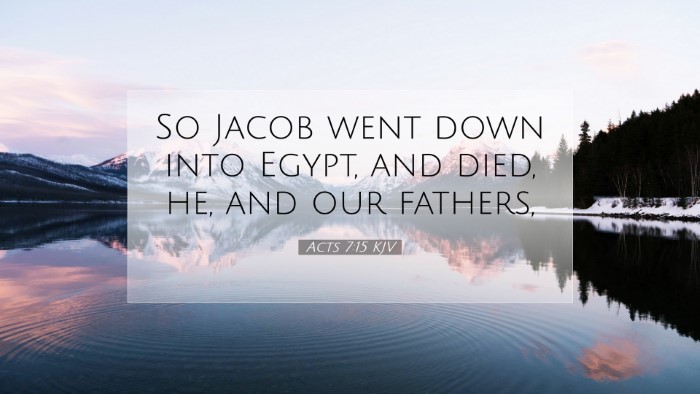Commentary on Acts 7:15
Acts 7:15 states, "So Jacob went down to Egypt, and died, he, and our fathers." This verse serves as part of Stephen's speech before the Sanhedrin, illustrating the historical context and God's providential hand in the events that shaped Israel's story. The verse marks a pivotal moment in the narrative of God's people, transitioning from the patriarchal era to the Egyptian captivity.
Historical Context
Stephen references the well-known patriarch Jacob, whose name was changed to Israel. The transition of Jacob and his sons into Egypt signifies not only a physical relocation but also the beginning of a significant chapter in the history of Israel. The later implications of this migration, leading to their enslavement, are important to understand the broader narrative of redemption and deliverance in Scripture.
Insights from Public Domain Commentaries
1. Matthew Henry's Commentary
Matthew Henry emphasizes that Jacob's descent into Egypt was not merely an act of seeking sustenance during a famine but a divine appointment, orchestrated by God to fulfill His promises. Henry notes the following points:
- God's Providence: The movement of Jacob into Egypt was part of God's sovereign plan. Henry states that God's intentions often manifest in ways that are not immediately evident to us.
- The Role of Famine: Jacob's journey was precipitated by famine, a powerful reminder of human vulnerability and dependence on divine provision. This aspect illustrates how even adverse circumstances can lead to divine fulfillment.
- Family Dynamics: The mention of Jacob’s family emphasizes the communal aspect of God's covenant. God was nurturing a nation through this family, often defined by trials and difficulties.
2. Albert Barnes' Notes
Albert Barnes provides a deeper analysis of the implications of Jacob's relocation to Egypt. He points out that:
- Migration's Significance: Barnes notes that Jacob's migration allowed for preservation and growth amid a devastating famine. This action portends a greater preservation of God's people.
- The Concept of Death: The phrase "and died, he, and our fathers" emphasizes mortality. Barnes illustrates that death is an inevitable part of human experience, underscoring the frailty of life and the ultimate sovereignty of God even in death.
- Continuity of God's Promise: Barnes emphasizes that God's promises extend beyond individual lives, threading through familial and national histories. The continuity of God's covenant is an important theme that is encapsulated in this verse.
3. Adam Clarke's Commentary
Adam Clarke offers a linguistic and theological examination of the verse. He reflects on the following:
- Linguistic Considerations: Clarke notes the Greek term used for “went down,” which carries implications of humility and submission. This reflects Jacob's recognition of his need for God’s guidance.
- Lessons from Jacob's Experience: Clarke indicates that Jacob’s journey symbolizes the need to trust in God’s provision, especially in times of desperation. The act of moving to Egypt signifies Jacob's faith in divine guidance despite uncertainty.
- The Transformative Nature of Death: Clarke reminds readers that while death is portrayed in somber tones, it is also a passage into God's eternal promise. Jacob's death is not an end but a continuation under God's covenantal faithfulness.
Theological Reflections
Acts 7:15 invites theological reflection on the themes of migration, sustenance, death, and divine faithfulness. Consider the following points:
- Migration as Divine Direction: Recognizing migration as a form of divine guidance encourages believers to perceive transitions in life as opportunities for growth and fulfillment of God's plans.
- Death's Perspective: Viewing death through the lens of God's covenant adds profound meaning to the journey of faith. Jacob's death is a reminder of the ultimate hope believers have in God's eternal promises.
- Community's Role in God’s Plan: The inclusion of Jacob's entire family reflects the communal aspect of God's covenant. Each family member plays a role in God's unfolding story, emphasizing the importance of community in theological discourse.
Conclusion
Acts 7:15 encapsulates crucial theological themes pertinent to pastors, students, and scholars. It signifies God’s providence in history, the frailty of human life, and the continuity of God’s promises across generations. By understanding the depth of this verse through the insights provided by respected commentators, one gains a greater appreciation for the overarching narrative of Scripture and thus is encouraged in their spiritual journey.


